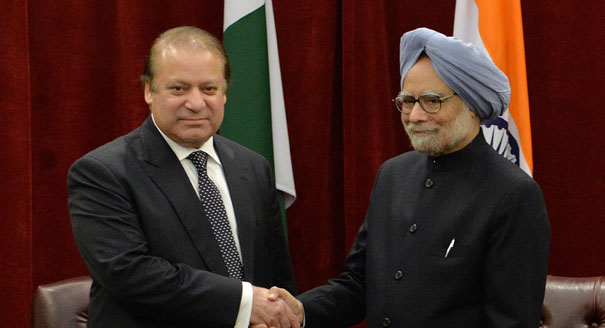The main source of Russian aggression is a profound mistrust of the West and the firm belief that it intends to inflict a “strategic defeat” on Russia. As long as this fear persists, the war will not end.
Tatiana Stanovaya
{
"authors": [
"C. Raja Mohan"
],
"type": "legacyinthemedia",
"centerAffiliationAll": "dc",
"centers": [
"Carnegie Endowment for International Peace",
"Carnegie India"
],
"collections": [],
"englishNewsletterAll": "",
"nonEnglishNewsletterAll": "",
"primaryCenter": "Carnegie India",
"programAffiliation": "SAP",
"programs": [
"South Asia"
],
"projects": [],
"regions": [
"South Asia",
"India",
"Pakistan"
],
"topics": [
"Foreign Policy"
]
}
Source: Getty
In recent years, sentiments for reviving cross-border connections with Pakistan have intensified on the Indian side of Punjab and have strong bipartisan support.
Source: Indian Express
Some Diplomatists in Delhi might have protocol and political reasons to frown at a "joint statement' issued by the chief ministers of east and west Punjab in Amritsar on Sunday calling for greater cross-border cooperation between the two provinces.
Pragmatists, however, would want to endorse the engagement between the two Punjabs as a potentially useful tool in the troubled diplomacy between India and Pakistan. With talks between Delhi and Islamabad stuck in a limbo, the positive tone of the joint statement between Prakash Singh Badal and Shahbaz Sharif is very welcome.
Badal's constructive approach to cross-border cooperation stands in contrast to the prevailing nihilism in Kolkata and Chennai. The Chief Minister of West Bengal Mamata Banerjee has refused to support carefully negotiated agreements with Bangladesh and undermined the prospects for a historic breakthrough in India's relations with an important neighbor. Competitive politics in Tamil Nadu have compelled Prime Minister Manmohan Singh to cancel plans to attend the Commonwealth Summit in Sri Lanka.In recent years, sentiments for reviving cross-border connections have intensified on the Indian side of Punjab and have strong bipartisan support. Capt Amrinder Singh, the Congress chief minister who preceded Badal, was the first to launch cross-border engagement a decade ago.
The current deputy chief minister, Sukhbir Singh Badal, traveled to Lahore last year and outlined an ambitious agenda for cooperation across the Radcliffe Line that divides the two provinces. The joint statement issued after Shahbaz Sharif's return visit reaffirmed the shared interests of the two provinces in "peace, harmony and economic growth".
There is an acute recognition that the two provinces can significantly improve their fortunes by ending the economic separation of the last many decades, forging strong commercial links, expanding connectivity, opening new trade routes, and promoting tourism. At the heart of this is the proposition that the two Punjabs can "leverage each other's potential".
Much of the agenda outlined by Badal and Sharif, however, can only be implemented by the central governments in Delhi and Islamabad. The two leaders therefore agreed to press their national capitals to facilitate deeper cooperation across the border in Punjab.
On its part, Delhi has largely been supportive. But signals from Shahbaz Sharif, younger brother of Prime Minister Nawaz, have been some what mixed.
In Amritsar, he was all for economic engagement transcending the Radcliffe Line. In Delhi, where he called on Prime Minister Manmohan Singh, Sharif seemed to suggest that Pakistan couldn't move on economic cooperation unless there is progress on other political issues like Kashmir and water disputes.
Delhi is aware that the Pak army continues to wield a veto over cooperation with India and the room for manoeuvre is limited for the civilian leaders. Yet India must encourage the leaders of the Punjab to intensify their engagement. In promoting such a dialogue, Delhi must also strive to improve coordination and consultation with the state leadership in Punjab.
This article was originally published in the Indian Express.
Carnegie does not take institutional positions on public policy issues; the views represented herein are those of the author(s) and do not necessarily reflect the views of Carnegie, its staff, or its trustees.
The main source of Russian aggression is a profound mistrust of the West and the firm belief that it intends to inflict a “strategic defeat” on Russia. As long as this fear persists, the war will not end.

Tatiana Stanovaya
Europe’s interests in Syria extend beyond migration management, yet the EU trails behind other players in the country’s post-Assad reconstruction. To boost its influence in Damascus, the union must upgrade its commitment to ensuring regional stability.


Bianka Speidl, Hanga Horváth-Sántha
It’s dangerous to dismiss Washington’s shambolic diplomacy out of hand.

Eric Ciaramella
The India AI Impact Summit offers a timely opportunity to experiment with and formalize new models of cooperation.


Lakshmee Sharma, Jane Munga
EU member states clash over how to boost the union’s competitiveness: Some want to favor European industries in public procurement, while others worry this could deter foreign investment. So, can the EU simultaneously attract global capital and reduce dependencies?

Rym Momtaz, ed.